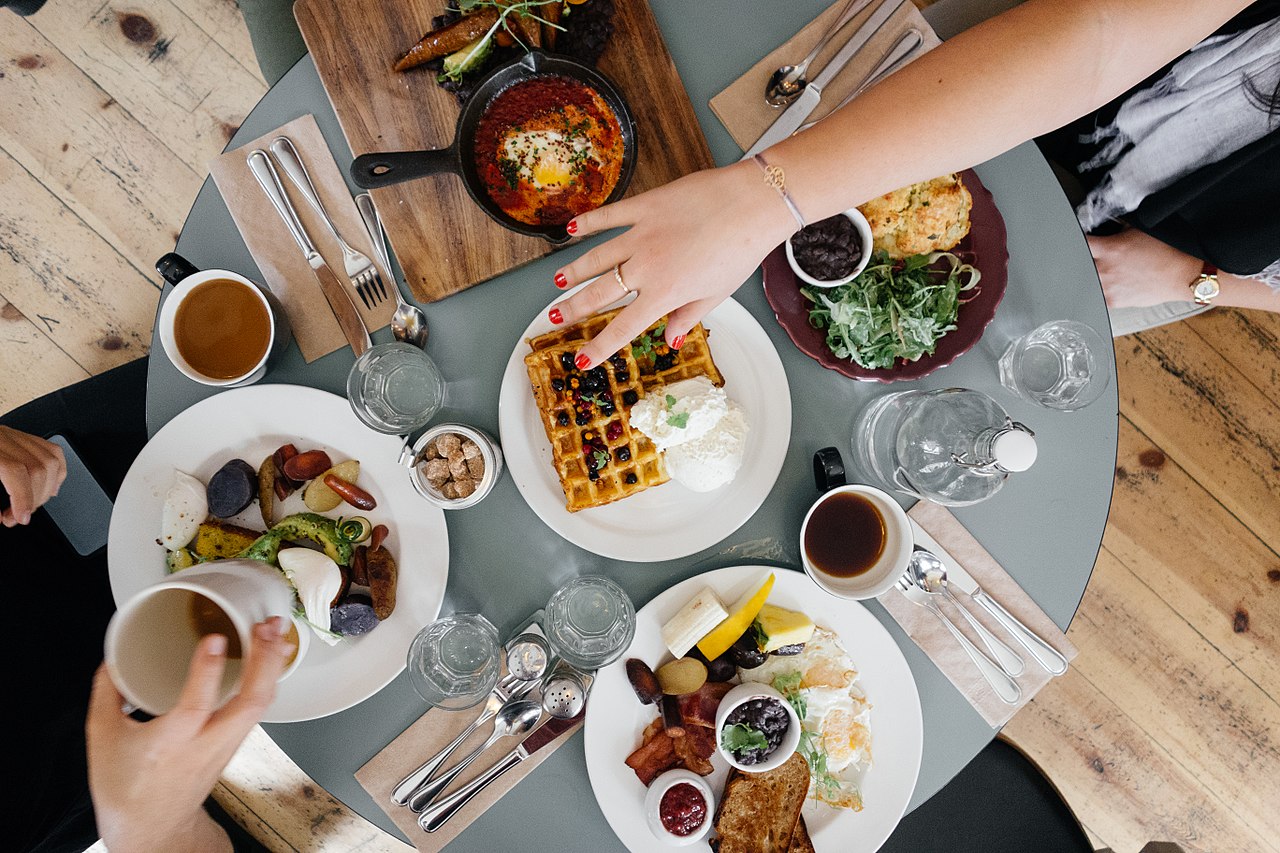In Defense of Brunch
As socialists, we’ve rallied against brunch for too long. What we should really be demanding is brunch for all. Consider this our apology.

Democratic socialists should invite those who pine for brunch to join the fight for more free time, better free time, free time for all. (Ali Inay / Unsplash)
Two days after Joe Biden’s inauguration, I got an email from a New York Democratic Socialists of America (DSA) chapter with the headline “Back to Brunch . . .” When I opened the message, the first line was “PSYCH!” The idea of getting “back to brunch” has become a grim running joke on the socialist left, a rag on liberals who infamously griped after Donald Trump’s 2016 election that if Hillary Clinton had won, we’d all be at brunch instead of protesting and participating in politics.
Since then, the word “brunch” has come to signify leftists’ deep misgivings about joining a coalition with prosperous liberals more concerned with returning to “normal” than building a better world.
The socialist left scorn for brunch and the liberal-professional-middle-class fetishization of the meal misunderstand what it really means. Brunch isn’t necessarily the apotheosis of a desire to demobilize and exit nasty, unpleasant politics. Brunch is only possible because of workers’ struggle — and its expansion to more people will necessarily be a fruit of future egalitarian victories.
Fundamentally, what is brunch? It’s a meal you eat on the weekend, anytime you feel like it, so long as it’s before dinner. Brunch expands the horizons of breakfast and lunch from mere utilitarian sustenance for the working day. Brunchers can have a few drinks in the middle of the day without judgment. In other words, brunch represents the triumph over the labor discipline of clock time.
Of course, that is not to valorize currently existing brunch. We brunch under capitalism, after all. As the beloved late Anthony Bourdain said, “It’s the least popular shift for cooks. I personally hate it. I’ve all sorts of deep, highly traumatic memories of my years cooking brunch.” Of all the meals workers prepare, brunch often seems the most loathed: it’s boring and rote to cook. The customers are hungover and rude, tipping poorly, and tables take forever to turn. Senior chefs who work the more prestigious dinner service take brunch off and leave the less experienced kitchen staff with the least desirable shifts of the week.
But another brunch is possible. After all, we can cook brunch for one another in our homes (or at socially distanced park picnics while the pandemic rages and weather permits). There is no intrinsic reason brunch has to be a theater of worker exploitation to serve yuppies underwhelming hangover food. The problem with brunch isn’t that it’s brunch — it’s that not everyone gets to enjoy it, and those who prepare it lack control of their workplaces.
To return to the political symbolism of brunch, it need not be demobilizing, either. Every successful social and political movement offers a vision of a brighter, more joyful future to those it wishes to draw into the fold. Socialists promise workers a world with more control over their own time, so they can enjoy boozy midday meals if they so choose. Scorning restorative time with friends and loved ones as a distraction from grueling and seemingly endless struggle can itself be demobilizing.
The task isn’t to shame people for wanting to enjoy free time. Instead, democratic socialists should invite those who pine for brunch to join the fight for more free time, better free time, free time for all. We do this when we demand not just bread but roses, too. What is so different about brunch and rosé?